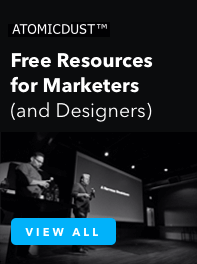The End of Google Authorship
When we talk to clients about SEO, content strategy and Google+, one tactical tip seems to always come up – Google Authorship.
We’ve written before about how Google Authorship allowed writers to link their Google+ profiles to the content they’ve created. When the two were linked, that author’s photo appeared alongside the article in organic search results on Google.
We say “appeared” – past tense – because in August, Google put an end to their Authorship program. Why end it? And what does the change mean for marketing?
Here are a few reasons Google put an end to Authorship:
The Mobile Interface. Google has been working on unifying their mobile and desktop experiences, and additional author photos and bios alongside content took up too much real estate on smaller mobile screens.
Low Adoption. According to Search Engine Land, only 32% of Forbes’ 50 Most Influential Social Media Marketers implemented Authorship on their blogs. If not even the best social media marketers are using it, who is?
It Just Doesn’t Matter. Despite what most marketers (including Atomicdust) assumed, Google reported in June that they were seeing little difference in click behavior on search results with author attribution. (To be fair though, if they were not showing Authorship in mobile results, and mobile search makes up nearly half of their user base, that would impact that statistic, right?)
Long story short, Google likely ended Google Authorship because… it’s Google. They’re always making changes to their algorithms and testing new products. Think about Google Buzz, Reader, Wave, and countless other discontinued Google products. While Authorship will no longer impact users’ search results, it’s likely that Google is still collecting that data and using author authority to rank search results.
The end of Google Authorship (as we know it) may actually have a positive effect on another Google product – Google+.
While most marketers have been advocating use of the network just for the SEO impact, this change could encourage more community building. Users are still seeing author photos of their Google+ connections in search results, which means the more connections you have in your Circles, the more often your author information will appear in search. This creates yet another opportunity to further your digital footprint across the world wide web.

